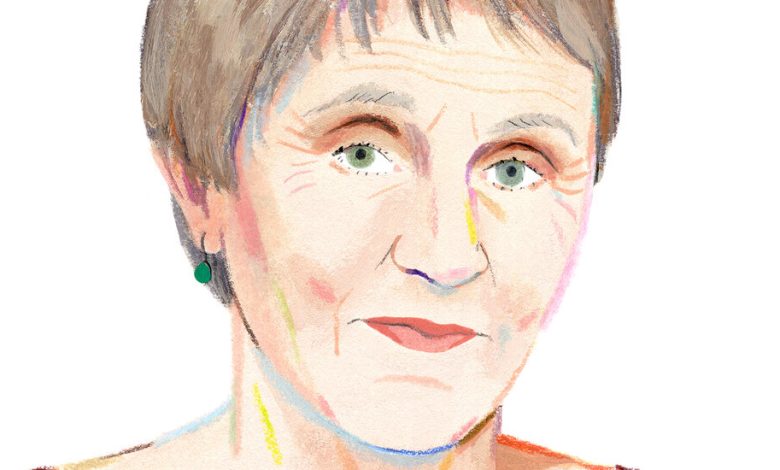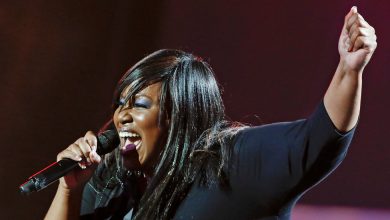Helen Garner Keeps ‘Paradise Lost’ and a Bible Close at Hand

What books are on your night stand?
“Urn Burial,” by Sir Thomas Browne, “Paradise Lost,” by John Milton, the King James Bible and the Book of Common Prayer. You never know when you might need to read something coolheaded about death, or be reminded of angels and other majestic beings.
What’s the last great book you read?
I reread “Another Country,” by James Baldwin. This is one of the few things I love about getting old — finding that something you read in the ignorance and laziness of youth is way deeper and more thrilling than you were then competent to see.
Are there any classic novels that you only recently read for the first time?
“Party Going,” by Henry Green (1939). It’s about a group of posh people waiting in a huge London railway station and station hotel for a train, delayed for hours by thick fog, which is supposed to take them to a wonderful weekend party. “Those standing in groups talked low and were rather bent and there was a huge illuminated clock they all kept looking at.” The way he puts a sentence together — so masterfully knobbly and casual — makes me want to shout with joy. In fact Henry Green might be my favorite writer of all time.
Can a great book be badly written? What other criteria can overcome bad prose?
A person who can’t write but who has a story that’s burning to be told can sometimes have a gravitas that shames a critic. But how sentences are made is of vital importance to me. Pompous, puffed-up, waffly language by writers of reputation is what makes me throw a book at the wall.
Describe your ideal reading experience (when, where, what, how).
Lying in bed on a winter day, while I’m supposed to be doing something else, rolled up in my quilt with two pillows under my head and a hot water bottle on my feet, reading Lydia Davis’s essay about how she worked her way through a huge novel in Norwegian, a language she didn’t know.
What’s your favorite book no one else has heard of?
“The Journey of the Stamp Animals,” by Phyllis Hay. It’s an Australian book I was crazy about when I was a child in the 1940s. An emu, a sheep, a kangaroo and a koala escape from the postage stamps on which their likenesses are printed, and venture out innocently into the world. I long for it to be reissued, with its stunning illustrations, but no Australian publisher of today seems to be interested so far.
Which writers — novelists, playwrights, critics, journalists, poets — working today do you admire most?
Annie Ernaux, Sebastian Smee, Fintan O’Toole, Caitlin Flanagan, Michael Lewis, Louise Glück. And I’m still mourning Janet Malcolm — her work taught me more than I can say.
You’ve written several books based on true crimes. Are you a big reader of mysteries and crime novels?
No, I don’t read them at all.
Do you count any books as guilty pleasures?
No, I’m pretty much guilt-free about reading.
Do you prefer books that reach you emotionally, or intellectually?
I need both.
How do you organize your books?
Alphabetically, by author. When I ran out of shelf space I had to move psychology, religion and foreign-language dictionaries into another room.
What’s the best book you’ve ever received as a gift?
The Shorter Oxford English Dictionary, single volume hardback, 1973 edition. It weighs nearly nine pounds. It was a birthday present from the people I lived with in a share house, back in the ’70s when we didn’t have any money. The price, $26.60, is still faintly penciled on the flyleaf, along with their names: Rosa, Ponch, Greig, Alan, Lackas, Raani and Alice. They must have clubbed together to buy it. I’ve used it every day for 50 years. It’s my treasure.
Have you ever changed your opinion of a book based on information about the author, or anything else?
No.
What kind of reader were you as a child? Which childhood books and authors stick with you most?
All I did was read. Standing up, lying down, while putting my clothes on in the morning. I’m not ashamed to say I read everything Enid Blyton wrote. “The Magic Faraway Tree” will stand in my imaginary forest forever.
What’s the last book you recommended to a member of your family?
John Hersey’s “Hiroshima,” to my clever 19-year-old grandson. Not sure if he’s read it yet. Or if I should have suggested it.
You’re organizing a literary dinner party. Which three writers, dead or alive, do you invite?
Philip Levine. Phyllis Rose. Tessa Hadley.
What do you plan to read next?
“The Story of a Life,” by Konstantin Paustovsky.




